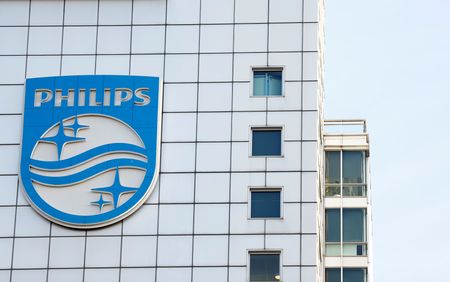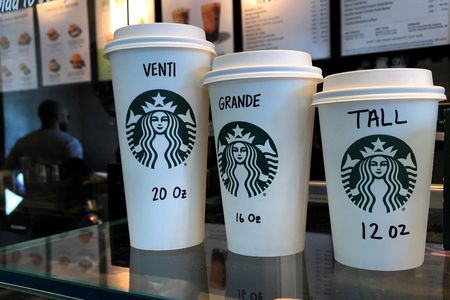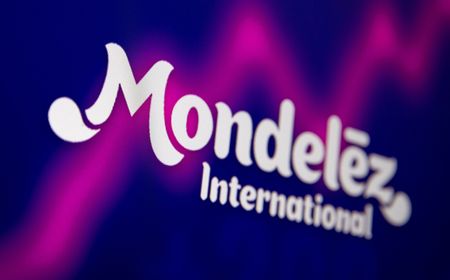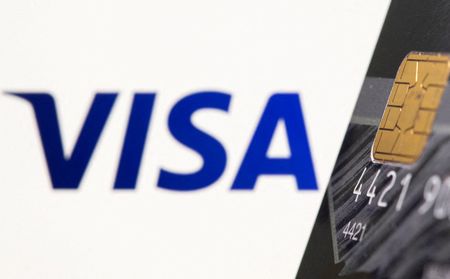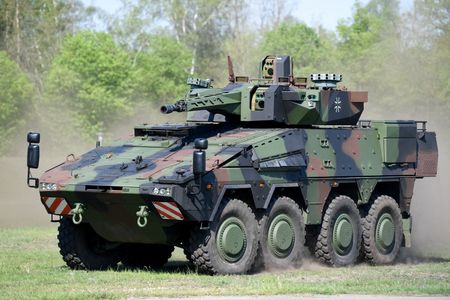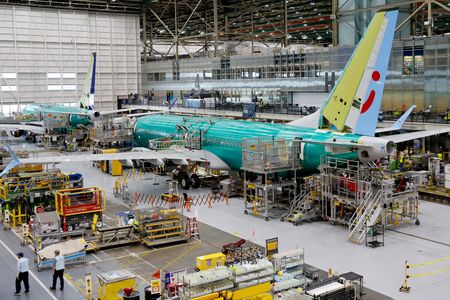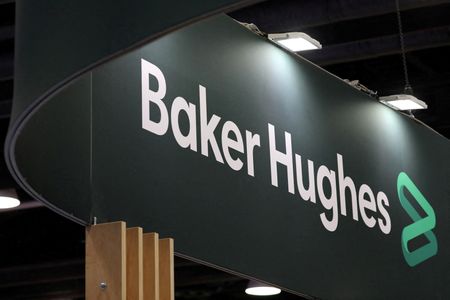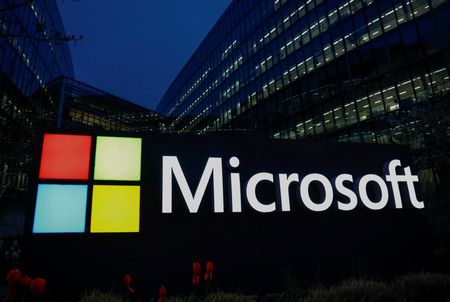By Alessandro Parodi
(Reuters) -Dutch healthcare technology company Philips slashed its estimated tariff impact on Tuesday after the United States and the European Union agreed a trade deal that imposes a 15% rate on most goods imported from Europe.
U.S. President Donald Trump had threatened to impose a 30% tariff on imports from the 27-nation EU bloc from August 1 in the absence of an agreement.
The group, which sells products ranging from toothbrushes to medical imaging systems, said it expected an impact of 150 million to 200 million euros ($173 million to $232 million) from the tariffs this year, lower than the 250 million to 300 million euros it had previously estimated.
Philips’ Amsterdam-listed stock was the top performer on the pan-European STOXX index in early Tuesday trading, climbing 10% by 0930 GMT.
Philips CEO Roy Jakobs told reporters that the U.S.-EU deal provided clarity, but Philips would continue to ask for an exemption from tariffs and other trade barriers for the healthcare sector, including in the U.S. and in China.
China announced earlier this month it was restricting government purchases of medical devices from the EU that exceed 45 million yuan ($6.27 million) in value, in retaliation against Brussels’ own curbs imposed in June.
“We have localized 90% of what we sell in China to manufacture in China, so this is not something of significance to us,” Jakobs said, adding that the Chinese market was slowly recovering.
SLEEP CARE RECOVERY, INDONESIA DEAL
Philips also increased its core profit (EBITA) margin forecast to a range of 11.3% to 11.8% for the year, from the previous guidance of 10.8% to 11.3%.
Chief Financial Officer Charlotte Hanneman told analysts that the company expects mid-single-digit growth and mid-teens margins beyond 2025, taking into account the impact of tariffs.
Its second-quarter adjusted EBITA margin grew to 12.4%, beating analysts’ average forecast of 9.9%, while sales were in line with market expectations at 4.3 billion euros.
Philips operates through its Personal Health, Diagnosis & Treatment, and Connected Care segments. Its top selling products include image-guided and diagnostic systems, consumer electronics and appliances.
The company’s sleep and respiratory care products, part of its Connected Care segment, accounted for about 6% of its total sales in 2024. That is about half their pre-pandemic levels, following a 2021 recall of millions of breathing devices and ventilators used to treat sleep apnea.
Philips said last April it had agreed to pay $1.1 billion, less than expected, in a settlement of personal injury cases in the United States related to the recall.
It said it was committed to rebuilding its position in the market while resolving the effects of the recall.
“We have strong momentum in the masks … and we are working our way back into the markets that we are reentering”, Jakobs told analyst on Tuesday.
Its comparable order intake grew by 6% in the quarter, the company said, citing the impact of innovations including AI-enabled diagnostic systems.
The group also said it had signed a long-term deal with the Indonesian Ministry of Health for its Azurion image-guided therapy system for cardiac, stroke and cancer care and expected a “sizable” impact on its revenues over time.
($1 = 0.8630 euros)
($1 = 7.1764 Chinese yuan renminbi)
(Reporting by Alessandro Parodi in Gdansk; Editing by Matt Scuffham, Milla Nissi-Prussak and Joe Bavier)

